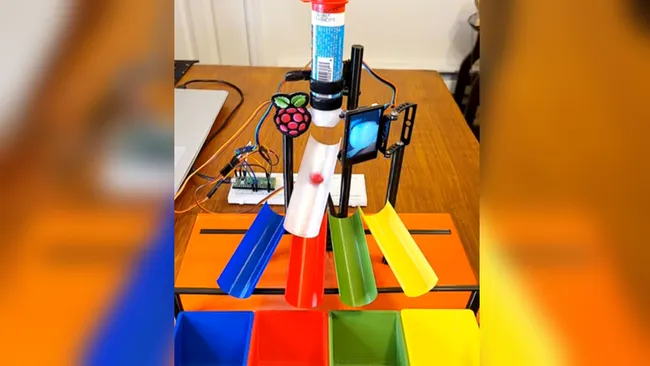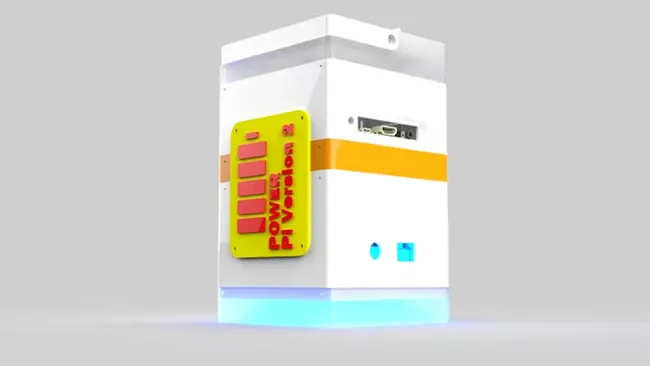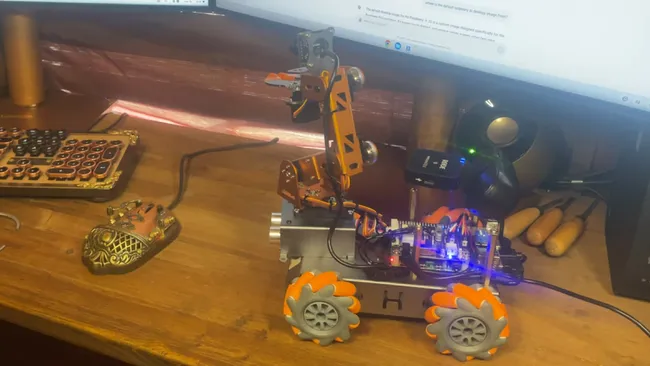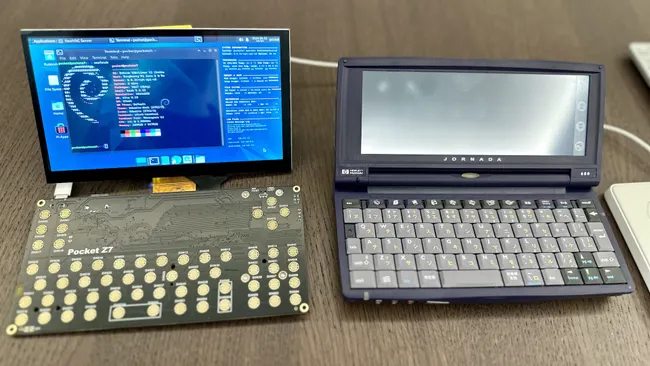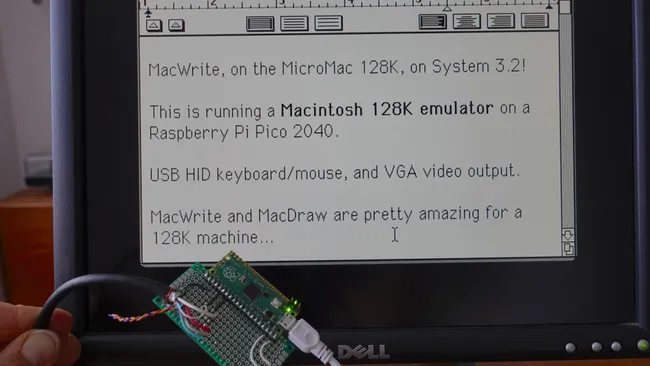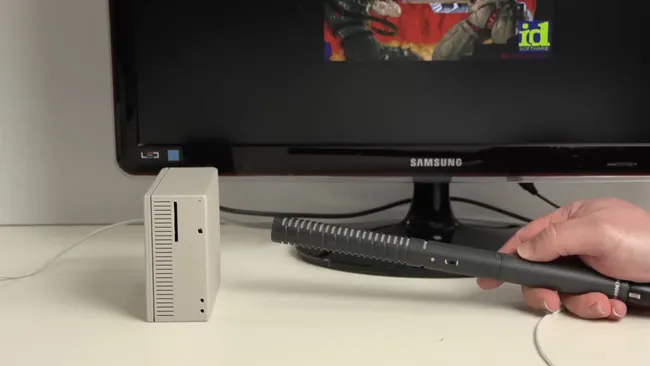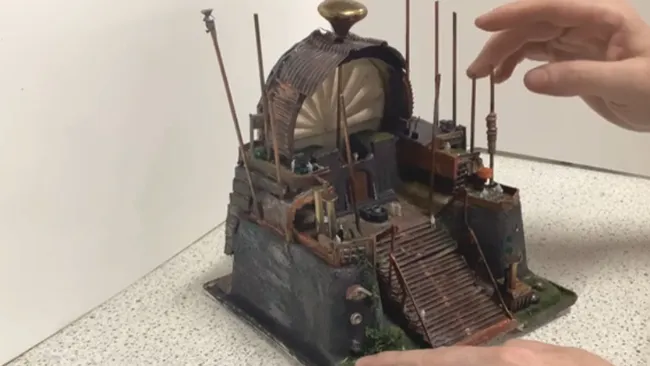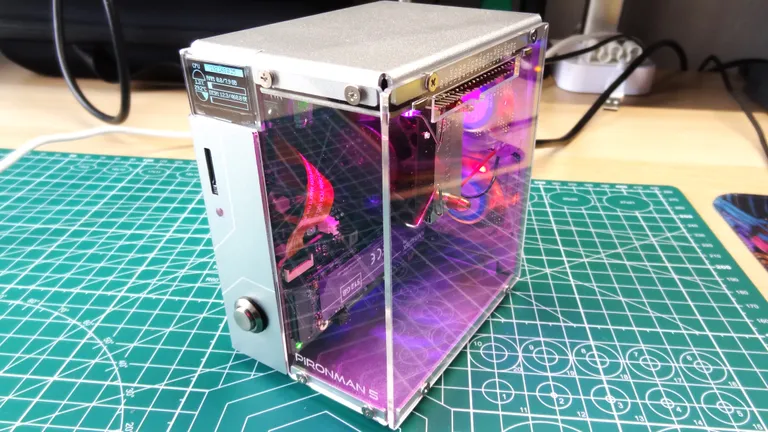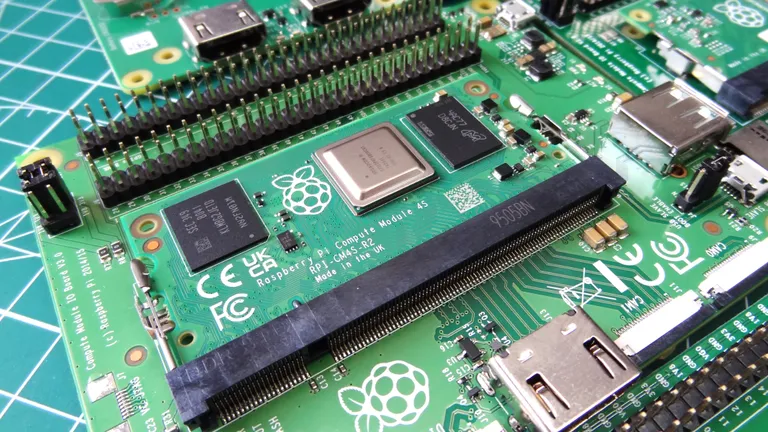Best Raspberry Pi Projects: March 2025
Get Tom's Hardware's best news and in-depth reviews, straight to your inbox.
You are now subscribed
Your newsletter sign-up was successful
The Raspberry Pi is one of our favorite SBCs, and it's no wonder why. The Pi community is full of incredibly inventive makers who constantly create exciting, awe-inspiring creations using everything from the latest Raspberry Pi 5 to custom PCBs with an RP2040 microcontroller. We feature Raspberry Pi projects all week, and once a month, we gather a list of 10 of our favorites that we think are worth highlighting again.
These makers use the best Raspberry Pi accessories to bring their ideas to life. If they can make something for themselves, they usually will. But you'll also find cool HATs, cases, and modules of all sorts. Whenever possible, we'll share links to the source code so you can dig into the projects for yourself and see how they work.
Raspberry Pi Pico Sorts Candies by Color
Sorting your candies has never been so lovely and overly engineered, thanks to Techtronic3D's Raspberry Pi-powered candy sorter. Just load up your candy and let the Pi work its magic. It takes a little bit of time as the machine has to process each candy one at a time. Once a candy's color is identified, it's dropped into a 3D-printed bin that matches the color.
Why we love it:
This is a fun idea that isn't very useful, but it absolutely works as intended. It's well-designed, and the 3D-printed components add an excellent finish to its overall function. Plus, it's hard to complain about a project with an end product you can eat.
Read: Raspberry Pi Pico Sorts Candies by Color
Raspberry Pi Portable Arcade Cabinets
Kian Ryan put together a really cool set of arcade cabinets that use Raspberry Pis for one of his clients. They needed something to take to conventions so much of the work was in making the units easy to set up, break down and transport. The end result is this cool set of cabinets that run custom homebrew and emulate old school consoles.
Get Tom's Hardware's best news and in-depth reviews, straight to your inbox.
Why we love it:
We love Raspberry Pi-powered arcades. Why wouldn't we get excited about a fleet of them that travels to various events? The cabinets look fantastic and we're just glad Ryan decided to put a Raspberry Pi inside all of them.
Read: Raspberry Pi Portable Arcade Cabinets
Battery-Powered Raspberry Pi PC
If you want a simple desktop with a small footprint, it makes perfect sense to create one yourself using a Raspberry Pi and that's exactly what maker and developer Arnov Sharma did. This custom desktop is known as the Power Pi Version 2 and it's not just tiny, it's portable. It also sports some fancy RGB LEDs so it has a little extra gamer flair.
Why we love it:
This PC is super cute and very well-designed. We like everything from the shape of the case to the RGB LEDs underneath. Sharma is no stranger to Pi projects so we weren't surprised to see how much work he put into this one. It's always a delight to see so much effort come together for a cool end product.
Read: Battery-Powered Raspberry Pi PC
Raspberry Pi Chat GPT Rover Bot
Some Raspberry Pi projects are made to roam and Floyd the rover bot is one of them. This Pi-powered robot was created by Larry's Workbench and it does much more than just locomote. Larry has spruced up Floyd with a dose of AI thanks to the integration of Chat GPT allowing him to talk with a good amount of sass.
Why we love it:
This is probably the closest we're going to get to creating a real life R2D2. Who doesn't love a talking robot with too much attitude? Apart from the Chat GPT features, it also has a cool rover design with omnidirectional wheels.
Read: Raspberry Pi Chat GPT Rover Bot
Raspberry Pi Zero 2W Pocket Z
Pocket PCs aren't what they used to be—nor should they! Technology has come a long way but a few makers want to take things back (just a little) like Icepat over at Hackaday. Using a Raspberry Pi Zero 2W, they've created a beautiful handheld PC called the Pocket Z. It features a custom PCB designed to work with the Raspberry Pi.
Why we love it:
This is a really cool example of how amazingly over the top some makers are with their creations. It's not enough to emulate an old system, they want to build one of their own and they'll design a PCB from scratch to make it happen.
Read: Raspberry Pi Zero 2W Pocket Z
Raspberry Pi Pico MicroMac
The cool thing about emulating old systems is you don't need expensive hardware. In fact, maker and developer Matt Evans is using a Raspberry Pi Pico to run this Macintosh 128K emulator. Evans demonstrated the Picos ability to run both MacDraw and MacWrite with a good deal of success.
Why we love it:
We like old technology. We like the Raspberry Pi. We really like seeing people emulate old technology on the Raspberry Pi—especially one of the smaller models like the Pico. It's a really fun project idea and we're glad to see it work so well in practice.
Read: Raspberry Pi Pico MicroMac
Baby Raspberry Pi Macintosh Quadra 700
Take everything you know about the Macintosh Quadra 700—now miniaturize it and make it Linux powered. That's exactly what Brachus Creations has done with this Pi-powered Macintosh Quadra 700 project. The original was released in 1991 and was much larger. That said, this is a fun desktop replica that works just as well.
Why we love it:
You really need a good case for the modern Raspberry Pi models so why not go all out in style? This project doesn't just look the part, it walks the walk thanks to the Basilisk emulator which lets you run actual Mac software from that era.
Read: Baby Raspberry Pi Macintosh Quadra 700
Use a Raspberry Pi to Detect Naruto Hand Seals
If you're a fan of Naruto, you probably don't need this project because you likely know all of the hand seals by heart but it's still really cool. Lucas Fernando is using AI to recognize the twelve hand seals from the Naruto franchise. He isn't using a Pi but assures the project can be replicated on a Pi 5 or Pi 4.
Why we love it:
This is one of those projects that isn't particularly useful, it's just really fun to see a proof of concept in action. It's also a neat way to play around with training an AI model with something interesting you enjoy.
Read: Use a Raspberry Pi to Detect Naruto Hand Seals
Raspberry Pi Bee Counting Beehive Monitor
Every now and then, we'll come across a Raspberry Pi project that aims to help the environment like this cool Pi-powered bee counting hive monitor. It uses AI to help monitor the population of a given beehive which is very useful for apiarists around the world. This particular project is running off of a Raspberry Pi Zero 2 W.
Why we love it:
We love bees! It's good to know some makers out there are putting the Pi to good use and helping us keep them around. The project works just as it was designed and serves as an excellent use case of AI.
Read: Raspberry Pi Bee Counting Beehive Monitor
Raspberry Pi Pico 26-Pin Capacitive Touch Sensor PCB
Anything can be an instrument with this cool capacitive touch sensor PCB put together by maker and developer Tom Fox. This board turns all 26 GPIO pins on the Pico into a touch sensor input. To demonstrate its potential, he created a touch sensitive instrument that doubles as an art piece.
Why we love it:
This PCB is an amazing demonstration of how a simple idea can be made into a fun, open source tool. Fox's PCB design is well done and can easily be incorporated into loads of cool projects.
Read: Raspberry Pi Pico 26-Pin Capacitive Touch Sensor PCB
Tom's Hardware Projects
We look at Raspberry Pi projects every day all week long, so it should come as no surprise that we like to tinker as well. Over the last month, we've had the opportunity to review some new Raspberry Pi hardware and wanted to share our findings with the Pi community.
Sunfounder Pironman 5 Review
The Pironman 5 case is like a tiny tabletop desktop for your Raspberry Pi 5. It has RGB LEDs and acrylic side panels so you can see all the hardware inside. There's a power button on the front along with an OLED screen. In this review, Les takes a look at how well it works and whether or not it's worth your time.
Read: Sunfounder Pironman 5 Review
Raspberry Pi Compute Module 4S
Looking for more Pi to get excited about? We just dropped our Raspberry Pi Compute Module 4S review. It's one of the latest boards in a long line of Pi products that we're more than excited to sink our teeth into.
Current page: Best Raspberry Pi Projects: July 2024
Prev Page Best Raspberry Pi Projects: August 2024 Next Page Best Raspberry Pi Projects: June 2024
Ash Hill is a contributing writer for Tom's Hardware with a wealth of experience in the hobby electronics, 3D printing and PCs. She manages the Pi projects of the month and much of our daily Raspberry Pi reporting while also finding the best coupons and deals on all tech.
-
R_1 Raspbian XP has merged with RaspbianX and is now Twister OS.Reply
you can get it here
https://raspbian-x.com/ -
princeror Reply
Raspberry Pi Scoreboard is the best Pi projectAdmin said:Makers this summer are keeping their hands busy with plenty of cool Raspberry Pi projects. Here are some of the best ones we've encountered over the past month.
Best Raspberry Pi Projects: August 2020 : Read more -
Endymio >> "This matrix cube project was created by a maker known as Sebastian Staacks. Using a Raspberry Pi, it constantly displays an animation that changes as his CPU temperature rises ..."Reply
A quad-core CPU and 20 million lines of Linux OS code-- all to implement a color-changing thermometer? And this is your number one project for the month? As much of a Raspberry Pi fan as I am, there is something indescribably banal in many of these projects. -
mrv_co Wow, judging by what I've seen on Reddit, I thought the only possible RPi projects were 'smart mirror' projects.Reply -
jtremblant @Tomshardware, It's "Pi Labs", you have a typo in your articleReply
https://twisteros.com/ -
mamasan2000 If you want a static IP on your RPI and you have it at the same spot (at home for example), go into your router and find Lan Setup or similar. Tie the RPIs MAC-address to an IP. It will always get that IP, even if you have DHCP on. Same goes for all the other devices you set up that way. So you can wipe the PC, RPI, whatever and they will always have the same IP.Reply -
dmijaj9 Well explained about the Raspberry-pi topic. Could you please add something about the CAN Protocol interface with raspberrypi? I want to have it with deep from basic to deep about CAN BUS.Reply -
wbfox Reply
They don't have a built in CAN controller or transceiver. You want something else for deep.dmijaj9 said:Well explained about the Raspberry-pi topic. Could you please add something about the CAN Protocol interface with raspberrypi? I want to have it with deep from basic to deep about CAN BUS.
